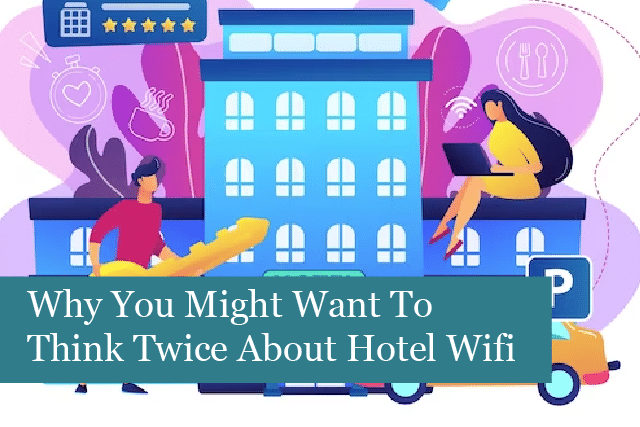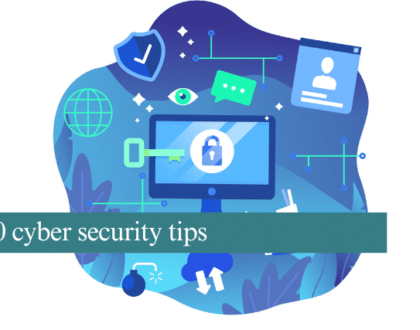
Even the small comfort of a mint on your pillow may not be enough to lift your spirits if you become a target of cybercrime during your hotel stay.
Connecting to hotel Wi-Fi is a common practice during business trips. It offers convenient internet access without draining your mobile data. Whether you’re checking emails, browsing the web, or streaming content, it seems harmless.
Is the connection truly secure?
Initially, can you be certain you’re connecting to the authentic hotel Wi-Fi network? It’s alarmingly simple for cybercriminals to create a fake hotspot with a similar name to the legitimate one. They can easily deceive unsuspecting guests into connecting to these rogue networks, thereby compromising their data. Especially for individuals engaging in online banking, falling victim to such a scam could have dire consequences.
While setting up these fraudulent hotspots requires the criminals to be physically present, it’s not a deterrent. Instances of fake ‘Free Wi-Fi’ hotspots in major cities suggest this tactic is prevalent. However, hackers increasingly prefer remote methods for their activities.
In 2014, Kaspersky disclosed the existence of Darkhotel, a long-running malware campaign that had been active since at least 2010. Darkhotel involved infecting hotel computers with malicious code to distribute fake software updates to guests. These guests, often targeted due to their wealth or access to sensitive data, became unwitting victims of data theft.
Primarily targeting luxury hotels in Asia, the Darkhotel group, also known as Tapaoux, extended its reach to countries like the USA, Germany, Ireland, and Russia. Though it previously focused on business travellers, it has since shifted to targeting political figures with malware like Inexsmar. However, this doesn’t eliminate the possibility of future attacks on business travellers.
While you may not be a prime target for sophisticated espionage groups like Darkhotel, using public Wi-Fi still poses risks. Various malware threats exist, and opportunistic criminals may attempt to steal from unsuspecting users.
To mitigate these risks, consider these precautions:
- Use separate devices: Reserve sensitive tasks for your personal devices, such as smartphones or tablets, while keeping work-related activities off public Wi-Fi.
- Utilise your phone as a hotspot: Share your smartphone’s 4G connection with your laptop for secure internet access. Though not foolproof, it’s a safer alternative.
- Check for duplicate network names: Alert hotel management if you encounter Wi-Fi networks with identical or similar names to ensure you connect to the legitimate one.
- Exercise caution with open Wi-Fi networks: Avoid connecting to networks that don’t require a password, as they’re more susceptible to security breaches.
By adhering to these guidelines, you can help safeguard your data while using hotel Wi-Fi networks.
Concluding thoughts
In conclusion, while hotel Wi-Fi networks offer convenience for travellers, they also present security risks that guests should be aware of and take precautions against. The threat of cyber attacks, such as those perpetrated by groups like Darkhotel, underscores the importance of vigilance when connecting to public networks. By following the recommended safety measures, such as using separate devices for sensitive tasks, verifying network authenticity, and employing VPN services, travellers can mitigate the risk of data breaches and protect their personal information. Additionally, staying informed about evolving security threats and hotel Wi-Fi protocols can further enhance one’s defence against potential cyber threats. By prioritising security and taking proactive steps to safeguard data, travellers can enjoy the benefits of hotel Wi-Fi connectivity with peace of mind.
Frequently asked questions
Can hotel Wi-Fi networks be encrypted to enhance security?
- Yes, hotel Wi-Fi networks can and should be encrypted to enhance security. Encrypted networks use protocols like WPA2 (Wi-Fi Protected Access 2) or WPA3, which encrypt data transmitted between devices and the Wi-Fi router. Guests should look for Wi-Fi networks with encryption enabled to reduce the risk of data interception by unauthorised individuals.
Are there any specific signs or indicators that can help guests identify legitimate hotel Wi-Fi networks?
- Yes, guests can look for specific signs to identify legitimate hotel Wi-Fi networks. These signs include verifying the network name (SSID) with the hotel staff, ensuring the network requires a password for access, and checking for official signage or instructions provided by the hotel. Additionally, guests can inquire about the Wi-Fi network details during check-in to ensure they connect to the correct network.
What measures can travellers take to protect their sensitive information while using hotel Wi-Fi?
- Travellers can take several measures to protect their sensitive information while using hotel Wi-Fi. These measures include using a reputable VPN (Virtual Private Network) service to encrypt internet traffic, avoiding accessing sensitive accounts or conducting financial transactions on public networks, keeping software and devices up to date with the latest security patches, and using strong, unique passwords for online accounts.
Are there any reputable VPN (Virtual Private Network) services recommended for securing connections on public Wi-Fi networks?
- Yes, there are several reputable VPN services recommended for securing connections on public Wi-Fi networks. Some popular VPN providers include ExpressVPN, NordVPN, CyberGhost VPN, and Surfshark. These VPN services offer encryption, privacy protection, and secure connections to help users safeguard their data while using public Wi-Fi networks.
How often do hotels update their Wi-Fi security protocols to defend against emerging threats?
- The frequency of hotel Wi-Fi security protocol updates may vary depending on the hotel’s policies and practices. However, reputable hotels typically prioritise the security of their Wi-Fi networks and implement regular updates to defend against emerging threats. Hotel guests can inquire about the hotel’s Wi-Fi security measures and update frequency during check-in or by contacting the hotel’s front desk or IT department.
Recommended Posts

IT Simplified: What Is A Firewall?
21st March 2025

10 cyber security tips
14th March 2025

